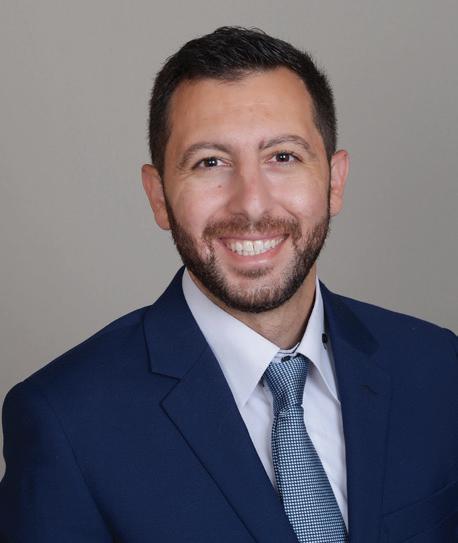
2 minute read
JEFFREY LEE MOSQUEIRA
University of Arizona
Jmosquiera@arizona.edu
Advertisement
Jeffrey Lee Mosqueira is an up-and-coming senior at the University of Arizona majoring in Physiology with an Emphasis in Medical Sciences and is seeking a minor in Biochemistry and Leadership Studies & Practice. Jeffrey was born in Tucson but was raised in Tokyo, Japan, Hermosillo, Mexico, and currently Tucson. He plans on applying to medical school in the summer of 2024. He is interested in assisting people around the world by working with Doctors Without Borders and pursuing an MD/MPH to understand the health disparities prominent around the globe. Since a young age, Jeffrey has been interested in medicine. He always assisted anyone who got hurt in the playground. His grandfather, an excellent anesthesiologist in Mexico, allowed him to experience healthcare at a young age. Jeffrey is currently the co-president of the Global Medical Brigades chapter at the University of Arizona. The chapter works with five countries worldwide to host clinics in medically underserved communities. He recently attended a brigade in Honduras, where he stayed a week with fellow members of the chapter, building eco-stoves, shadowing Doctors, triaging patients, and presenting an interactive workshop with adults and children. During his leisure time, Jeffrey likes to indulge in activities such as listening to music, swimming, and watching sports.

⊲ PROJECT
Characterization of Low-Density Lipoproteins Subclasses in Plasma Using Orbitrap Charge Detection Mass Spectrometry
Lipoproteins are known biomolecules that facilitate triglycerides and cholesterol transport. High levels of specific LDL subclasses are positively correlated with an increased risk of cardiovascular disease (CVD). When being tested for cholesterol levels in someone’s bloodstream, about five subclasses of LDL are identified to measure this; This all depends on the characterization of LDL subclasses. Usually, a high cholesterol level could lead to atherosclerosis, plaque buildup in your arteries, leading to a more severe CVD. Reports show that these plaque buildups still occur even when cholesterol levels are low. By classifying LDL subclasses using Mass Spectrometry, we might be able to identify different subclasses of LDL that cause plaque buildup to occur even in low quantities. Charge Detection Mass Spectrum has only been done once; therefore, this project will delve into a new field of biochemistry.
MICHAEL MARTY PhD
Associate Professor, Chemistry & Biochemistry
Mtmarty@arizona.edu
Michael Marty, Ph.D., is an Assistant Professor of Chemistry & Biochemistry at The University of Arizona. Dr. Marty earned his B.A. in chemistry and mathematics at St. Olaf College in 2010, graduating summa cum laude and Phi Beta Kappa. He completed his Ph.D. in chemistry as a Springborn Fellow at the University of Illinois Urbana-Champaign in 2013 followed by postdoctoral research at the University of Oxford until joining the faculty in 2016. He has been awarded the ASMS Research Award, the Bisgrove Scholar Award, and the NIH MIRA award. His research applies lipoprotein nanodiscs with mass spectrometry to study membrane proteins, antimicrobial peptides, and their interactions with lipid bilayers.
Prof. Marty’s research centers on developing new technologies to study interactions at biological membranes, with a special focus on combining lipoprotein nanodiscs and native mass spectrometry. One aspect of his research focuses on characterizing membrane protein-protein and membrane protein-lipid interactions. Membrane proteins are important drug targets, and the Marty lab seeks to understand how lipids influence membrane proteins important in cancer. The second aspect of Prof. Marty’s research focuses on assembly of antimicrobial peptide complexes, which also show anticancer activity. By characterizing the biophysics of peptide interactions with and within lipid bilayers, they seek to shed light on the mechanisms of anticancer peptide toxicity and selectivity.





